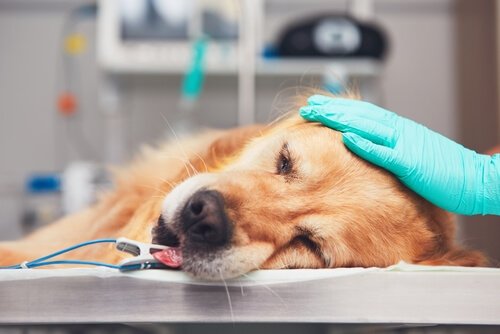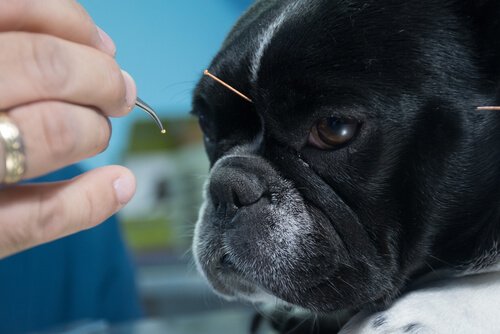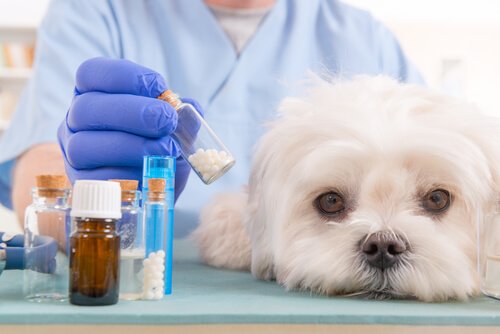Are There Natural Remedies that Help Animals with Cancer?

Animals can have many diseases similar to those humans suffer because their bodies are much like ours. Unfortunately, cancer is one of the most common conditions in pets. Chemotherapy is an option to get rid of it. However, due to its side effects, many wonder if there are any natural remedies to help animals with cancer.
What are natural remedies to help animals with cancer?
There is a specialized set of natural alternatives that can effectively help pets that have cancer. However, they should not take the place of chemotherapy. Rather, they can be done by using different methods depending on the sick animal’s needs.
While chemical chemotherapy is a liquid chemical compound that is given through the patient’s blood, natural remedies can be applied in several ways because what really matters is the final result. So, do not expect to find some miraculous liquid bottles that can be injected into your pet to get rid of the cancer.
You will have to research and analyze the different options, and with the help of your vet, you can decide which alternatives or combination will be effective for your pet.
Natural remedies to help animals with cancer
Acupuncture
According to traditional Chinese medicine, tumors are formed due to a pre-existing blockage that can be caused by several reasons. When this becomes solid, it keeps the blood and phlegm properly circulating. This can accumulate in the tissues to create a bulge that becomes a malignant tumor.

First, the vet has to identify the blockage and find the tumor. Then from there, it’s possible to get rid of it through acupuncture. They do this by stimulating the animal’s adaptive/homeostasis/immunological control system. In turn, the pet will control the tumor and not the other way around.
So acupuncture to get rid of cancer in animals will be done by thoroughly treating a few points. Of course, in order to know if the type of tumor that your pet has is compatible with this technique, you will have to talk to your vet.
Good nutrition
There have been cases that claim a specific diet designed to cope with this terrible disease has gotten rid of certain types of malignant tumors. These types of natural remedies that help animals with cancer are more meant to prevent the tumors. At the same time, it can also help manage an immune system that’s out of control.
This “attack” happens through several supplements such as:
- Vitamins and minerals. Among the vitamins are A, D3, C, E, and selenium, which are star minerals that directly attacks the cancer cells.
- Omega-3 fatty acids.
- Bioflavonoids. These are in some foods such as wheat or grapes. Alternatively, you can also give them in capsule form as a food supplement.
- Amino acids. Arginine, glutamine, and melanin have can increase the functionality of the immune system. Also, these acids are known for slowing down the growth of cancer and fight cancer cells.
Homeopathy
Homeopathy is a treatment that uses herbs and natural supplements. Its meant to achieve different objectives such as slowing tumor growth, relieving pain and anxiety, and preventing metastasis.

In this case, you will find the appropriate set of all supplements that can help alleviate the suffering that the animal is going through. There are different vets that are specialized in homeopathy. If yours is not one of them, you can ask if he knows any.
Natural remedies have worked well in many cases. However, we want to clarify that My Animals is not recommending this version of therapy over any other. We are only providing you with information that each animal’s owner can use.
It’s true that natural remedies have been effective in many cases, but, above all, it stands as an option to prevent the secondary effects of the traditional method.